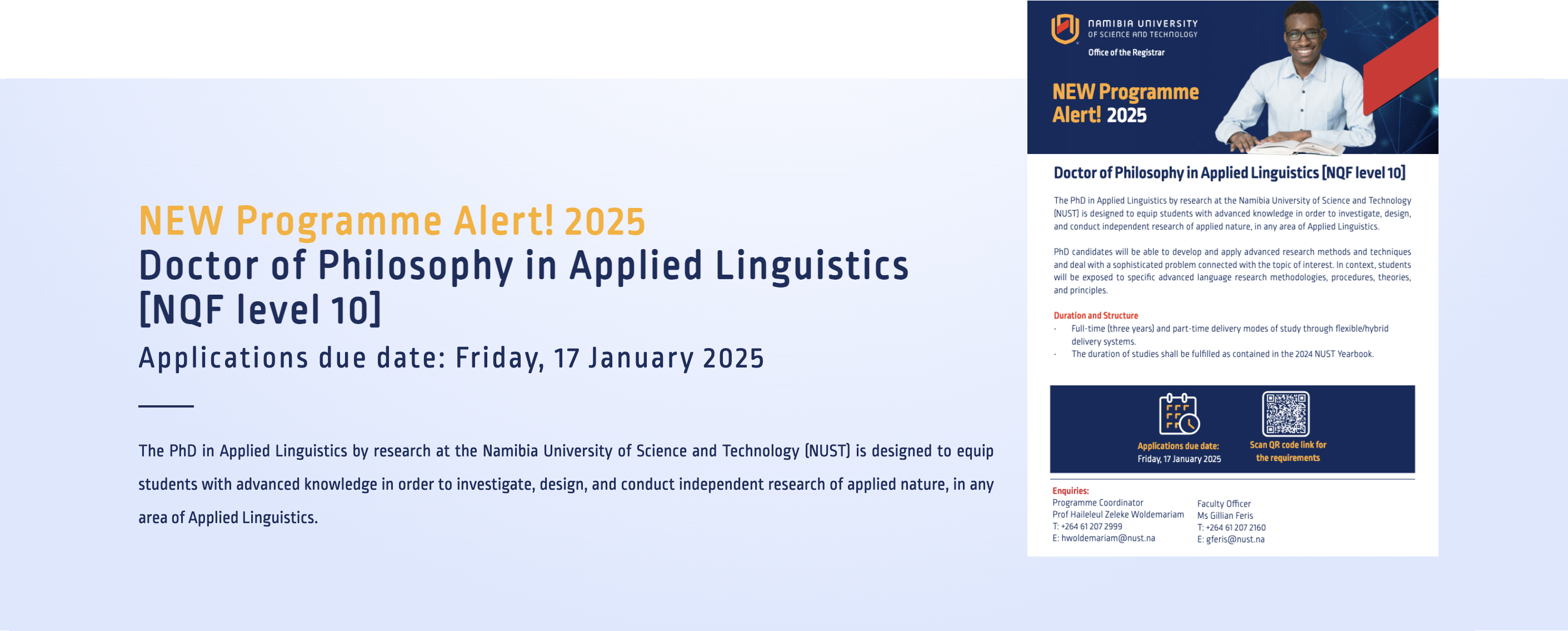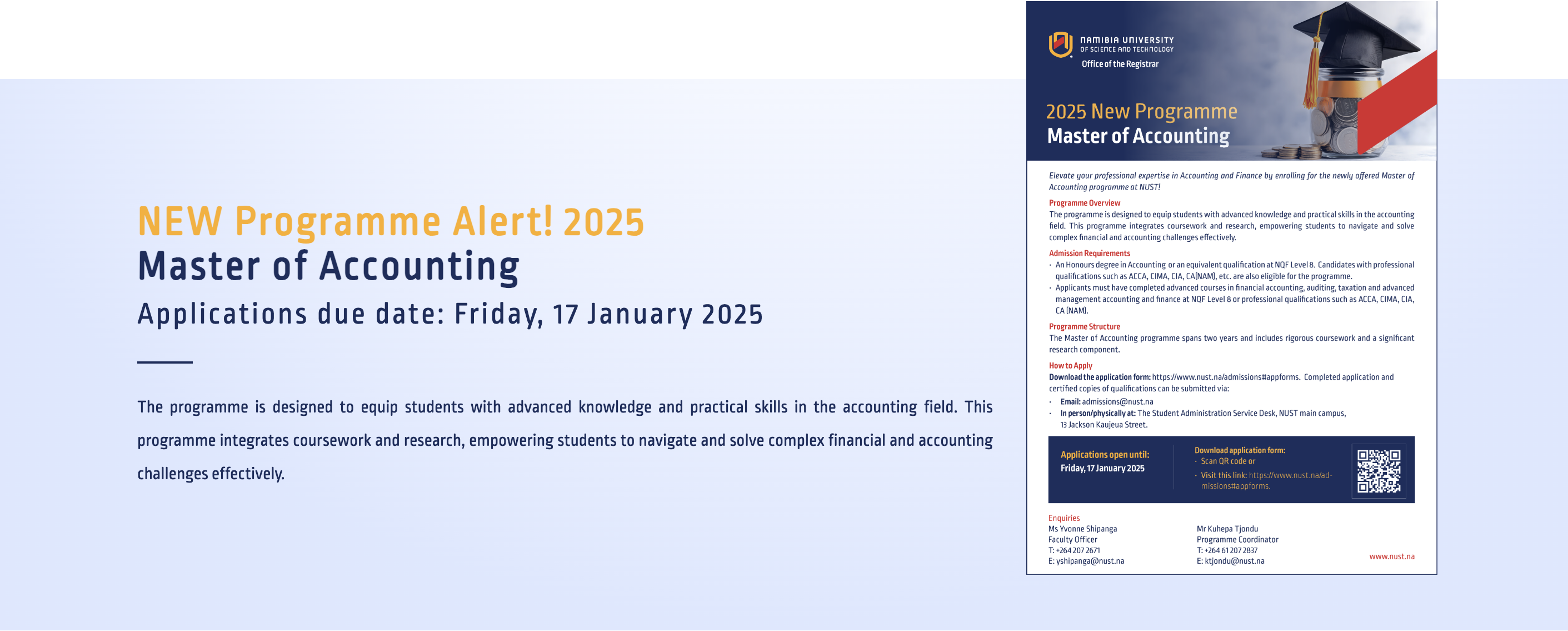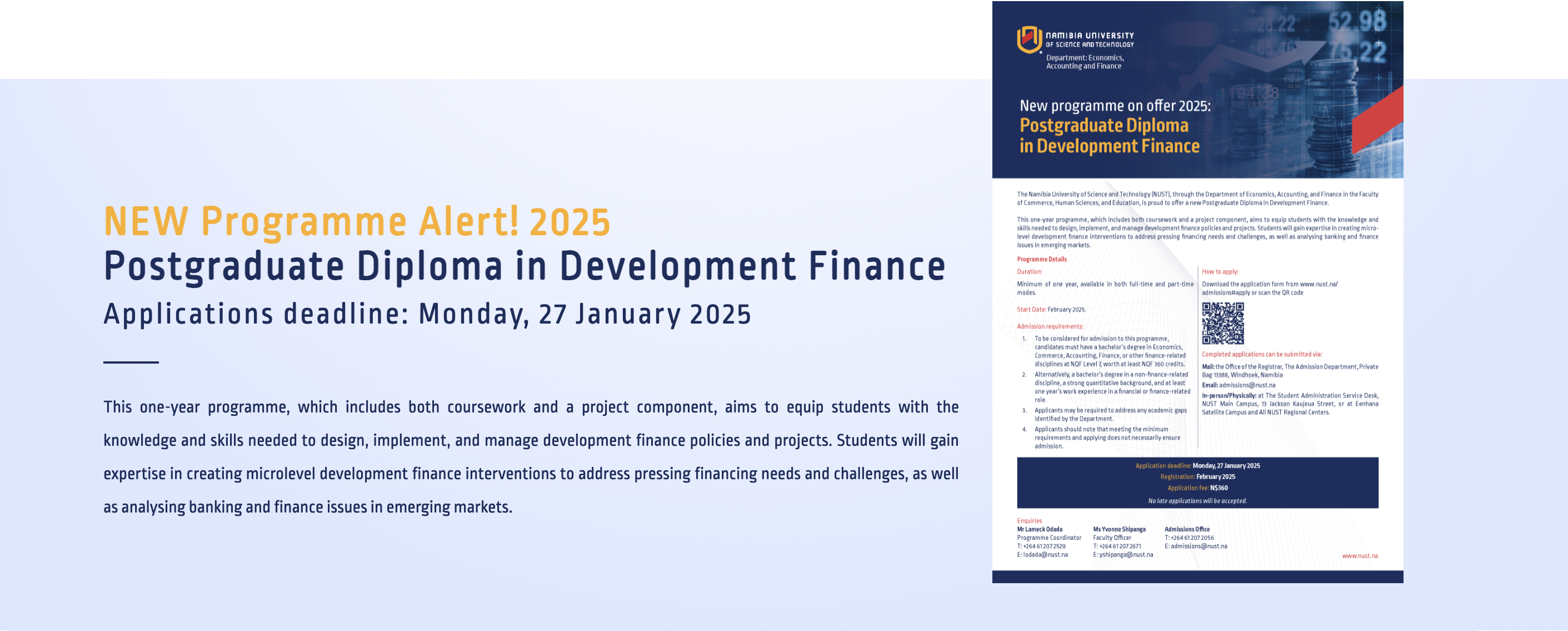FACULTY HOME
The Faculty of Commerce, Human Sciences and Education (FCHSE) contributes to scholarship through applied research and instructional development. It provides students with the background necessary to pursue advanced studies in Linguistics, Criminal Justice, Policing, Communication, Education, National and Foreign Languages, TVET, Business Administration, Human Resources, Marketing, Accounting and Finance, Economics, Entrepreneurship, Procurement, Logistics & Transport, Sport Management, Hospitality and Tourism, Business Information Administration, Governance and Public Administration and related fields.
The Faculty prides itself with diversity, collegiality, cohesion and inclusion. The educational experience in the undergraduate and graduate levels is designed to provide students with the intellectual flexibility to be successful in a dynamic business environment. In addition, to provide support to employer community through the development of marketable skills in potential employees, the Faculty enhances the competitive capabilities of local businesses by providing continuing education courses, certification and consulting services through the Harold Pupkewitz Graduate School of Business (HPGSB) and its Centre for Enterprise Development (CED), the Namibian-German Centre for Logistics (NGCL), the Namibia Graduate School of Accounting (NGSA) and the individual efforts of faculty.
Social Sciences
- Criminal Justice in Correctional Management
- Policing
Technical and Vocational Education and Training
- Higher Education
- Trainer
- Training Management
Communication and Languages
- Communication
- English and Linguistics
- English and Applied Linguistics
Marketing, Logistics and Sport Management
- Marketing
- Sport Management
- Logistics and Supply Chain
- Procurement and Supply Chain
Governance and Management Science
- Business Management
- Entrepreneurship
- Innovation
- Human Resources
- Business and Information Administration
- Public Management
- Industrial and Labour Relations
- Public Governance
Economics, Accounting and Finance
- Economics
- Accounting
- Chartered Accountancy
Hospitality and Tourism
- Hospitality Management
- Tourism and Development
- Tourism Management
- Culinary Arts







